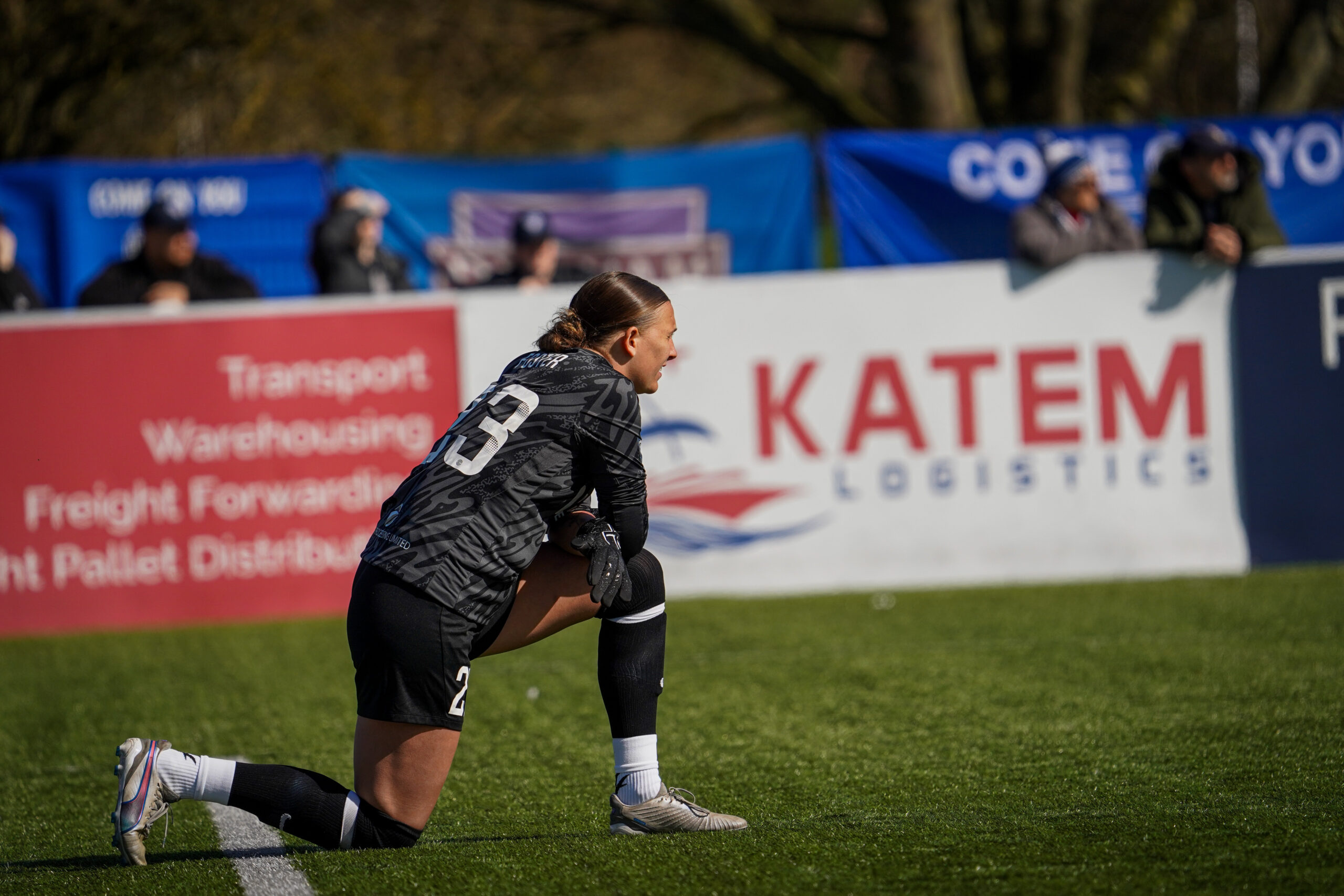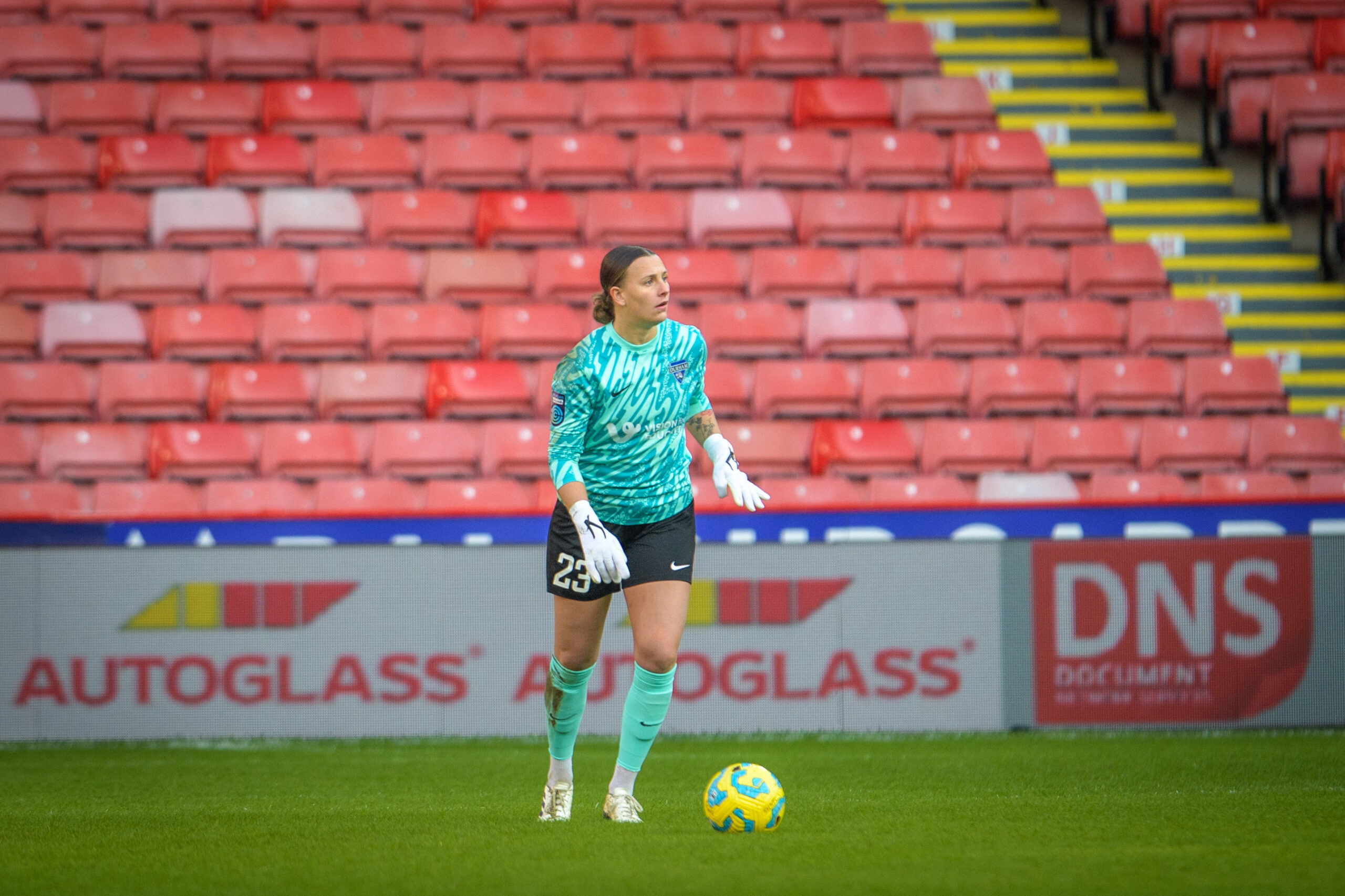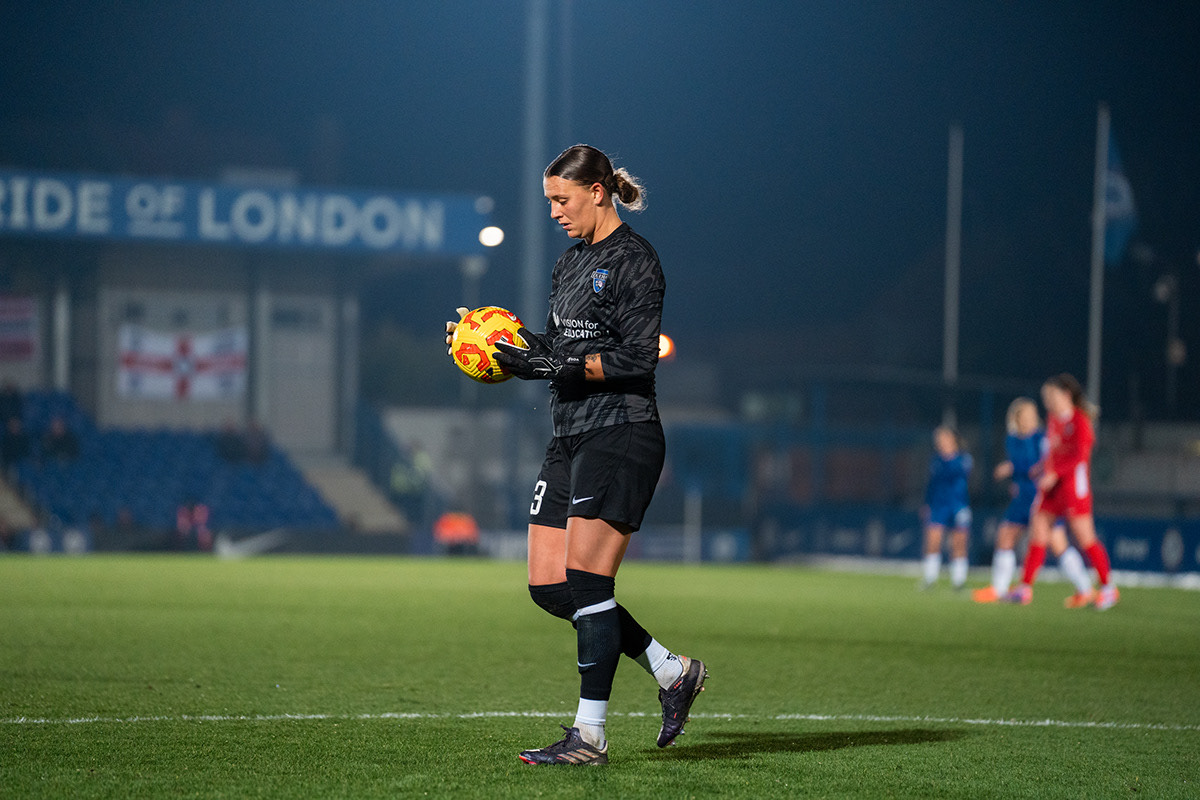Rylee Foster is a professional goalkeeper and hearing aid user, widely recognised for her dedication to both elite sport and hearing health advocacy. She has represented Canada at youth international levels and played professionally for Liverpool FC Women in the English Women’s Super League. As one of the few professional footballers with hearing loss, Rylee champions accessibility and inclusion in sport, drawing from her own lived experience.
1. Let’s start from the beginning. What initially motivated you to pursue professional soccer, given how demanding a career it is?
I think I was about two or three when I first started kicking a ball. I’ve always been active, but more than that, I’ve always had this drive to do things others said I couldn’t. If someone told me I couldn’t do something, I’d go and prove them wrong. My mom used to joke that I’d be walking on top of a fence just to show I could. From a young age, I wanted to break the stigma—especially the one that said girls couldn’t play professionally or make a living out of it. I just loved the game and was determined to find a way. Over time, that love became a passion. Football gave me a platform to express myself at the highest level. And honestly, I could never see myself working a nine-to-five in an office.
2. I read that hearing loss is something that runs in your family. How did that shape your outlook on life?
It’s always been part of our reality. On my mom’s side, hearing loss is genetic. My mom is completely deaf and uses cochlear implants. Her two sisters are also hearing impaired, though to varying degrees. I got tested around the age of six or seven—not because anyone suspected anything. I was doing well in school, no red flags. It was actually my sister who was struggling, and that led to both of us being tested. Surprisingly, my hearing was worse than hers.
Over time, my hearing has stayed relatively stable, while my sister’s has deteriorated significantly. She’s now close to needing cochlear implants herself. So growing up, yelling across the house was completely normal for us. Communication in our household was very visual and loud. It made me more aware of body language and helped me connect with people on different levels.
3. When did you first start using hearing aids?
Right after the diagnosis. My mom was really adamant about it because she regretted not wearing hers as consistently growing up. There was a stigma around it in her time, and she didn’t want us to go through the same. So, I got hearing aids in both ears, and my sister got one.
As I got older, I stopped wearing them. I felt like I was managing fine. But looking back, that was a mistake. Not because it dramatically impacted my life, but I probably could’ve done better in school and made things easier for myself.

4. When you did wear them, did you feel a noticeable difference?
Definitely. Not so much in the classroom—I was always focused and loved school—but more in everyday life. I’d step outside and suddenly hear birds chirping or the wind through the leaves. Those were sounds I’d never noticed before. But the biggest difference was the fatigue. Lip reading, focusing so intently just to understand the basics—it was exhausting. Hearing aids allowed me to conserve that energy. I could come home and not feel completely burnt out.
5. Did hearing aids impact your soccer experience as well?
When I was young, I didn’t wear them on the field. Back then, hearing aids weren’t sweatproof, and I wasn’t exactly gentle—I’d dump water over my head mid-game. But where I’ve noticed the biggest change is off the pitch. So much of football today is classroom-based—meetings, video analysis, strategy talks. With hearing aids, I can absorb information fully instead of trying to guess what’s being said. That clarity helps me apply what I’ve learned on the field.
On the pitch, I still rely heavily on body language and physical cues. Especially as a goalkeeper, that’s actually an asset. I’ve developed heightened awareness and anticipation, which gives me an edge.
6. I wanted to ask about the car accident you had. Did your hearing aids play any role in your recovery?
That accident was life-changing. I broke my neck in seven places and suffered a subdural hematoma—a brain bleed. It wasn’t just physically traumatic; cognitively, I was wiped out. I couldn’t read, couldn’t look at screens, couldn’t hold conversations. My memory was severely impacted, and I was constantly fatigued.
That’s when I started using my hearing aids again. My brain didn’t have the energy to work overtime just to hear. The aids reduced that cognitive load. I could actually focus on my rehab, listen to doctors, talk to therapists. It was a huge part of getting through that period. I still deal with some memory issues, but the hearing aids help manage the fatigue and let me participate fully again.

7. Looking back on your development—both personal and professional—where have the hearing aids made the biggest difference?
In relationships. I used to isolate myself. I’d avoid conversations because I couldn’t hear people properly. I hated asking them to repeat themselves. I missed out on social connections—with teammates, coaches, even my own family. Now, I feel present. I can have real conversations, participate in meetings, understand feedback. I regret not building those connections sooner. But now, I really see the value of hearing aids in those everyday interactions.
8. What advice would you give to young athletes dealing with hearing loss?
Embrace it. Your hearing loss is part of who you are—it makes you unique. My mom was my role model in this. She struggled, but she always showed up. Don’t hide from it. Own it. And remember, we live in a time where differences are celebrated. When I met my boyfriend, he said my hearing aids were like a superpower. That mindset shift is so important. Build your confidence early, and by the time you’re my age, you’ll be flying.
9. Finally, if you had the chance to speak to policymakers or decision-makers, what would you tell them?
Think about your younger self—or your children or grandchildren. If they had a disability, would you want them to go without support? Providing access to resources—whether in education, sport, or social environments—makes a huge difference. If people don’t have that access, they’re more likely to isolate themselves. But with the right tools and support, they’ll feel empowered to contribute, to succeed, and to thrive.


